Is fashion finally slowing down? Prada, Marni, and Stella McCartney shone a spotlight on slower and more sustainable fashion at this year's Met Gala
The Met Gala has never been for the masses, but its impact—whether good or bad—reverberates.


On Monday (6th May), fashion paid tribute to the natural world at the glitziest event on the fashion calendar - the Met Gala. Although the Metropolitan Museum of Art’s annual celebration honoured the Costume Institute’s Sleeping Beauties: Reawakening Fashion exhibition, the dress code was “The Garden of Time”. Referencing J.G. Ballard’s short story of the same name, guests were invited to embrace the ethereal theme. As expected, many donned creations drawn from the natural world, sparking a thousand “Florals for spring? Groundbreaking” memes.
Less explicit references to Ballard’s 1962 tale could be glimpsed in the futuristic designs that championed the natural world in more opaque ways, namely through sustainable practices and emerging technologies. The latter was a literary trope of the English novelist, who explored sci-fi and dystopia in his writing decades before we’d ever watched Black Mirror.
'Fleeting beauty' was the ominous directive to guests from Met Gala curator and Vogue Editor-In-Chief Anna Wintour. Stars including Jennifer Lopez, Charlie XCX, and Amanda Seyfried played with the dress code more experimentally, nodding to the moral in Ballard’s sci-fi fable; that time eventually runs out for everyone. Fleeting beauty, indeed.
As “the internet’s libraria,” Jack Edwards explains,” on TikTok, The Garden of Time revolves around a character named Count Axel and his wife, who live in an extravagant villa brimming with rare books and antiques. But shattering their lavish domesticity is an encroaching mob. To keep the rabble at bay, the Count cuts a “time flower” from his garden, temporarily making the masses retreat, but eventually, the couple runs out of these “time flowers.”
Edwards’ theory is that the short story “represents this human cycle of creation and destruction.” Seen through this literary lens, the Met Gala dress code seems a surprising choice, given the industry’s long-standing love of nature and simultaneous involvement with its destruction. While Ballard is perhaps best associated with a sense of dystopia, he was ultimately a futurist. His stories spoke to the climate crisis decades before it became a part of everyday conversation.
The Met Gala has never been for the masses, but what happens in the highest echelons of fashion undoubtedly impacts the industry at large. As the Global Fashion Agenda reports; “In many ways, the Met Gala serves as a bellwether for the broader industry, signalling that vintage and pre-loved goods are only going to increase in popularity.”
While many guests played into the horticultural element explicitly referenced in the dress code, here, we look at the more inventive explorations of The Garden of Time and pay homage to the industry futurists who are leading the way in more sustainable and slower fashion.
Celebrity news, beauty, fashion advice, and fascinating features, delivered straight to your inbox!
Tyla in Balmain
Singer Tyla wore an hourglass-inspired dress—and literal hourglass accessory—by Balmain, which not-so subtly nodded to the dress code’s theme of impermanence.
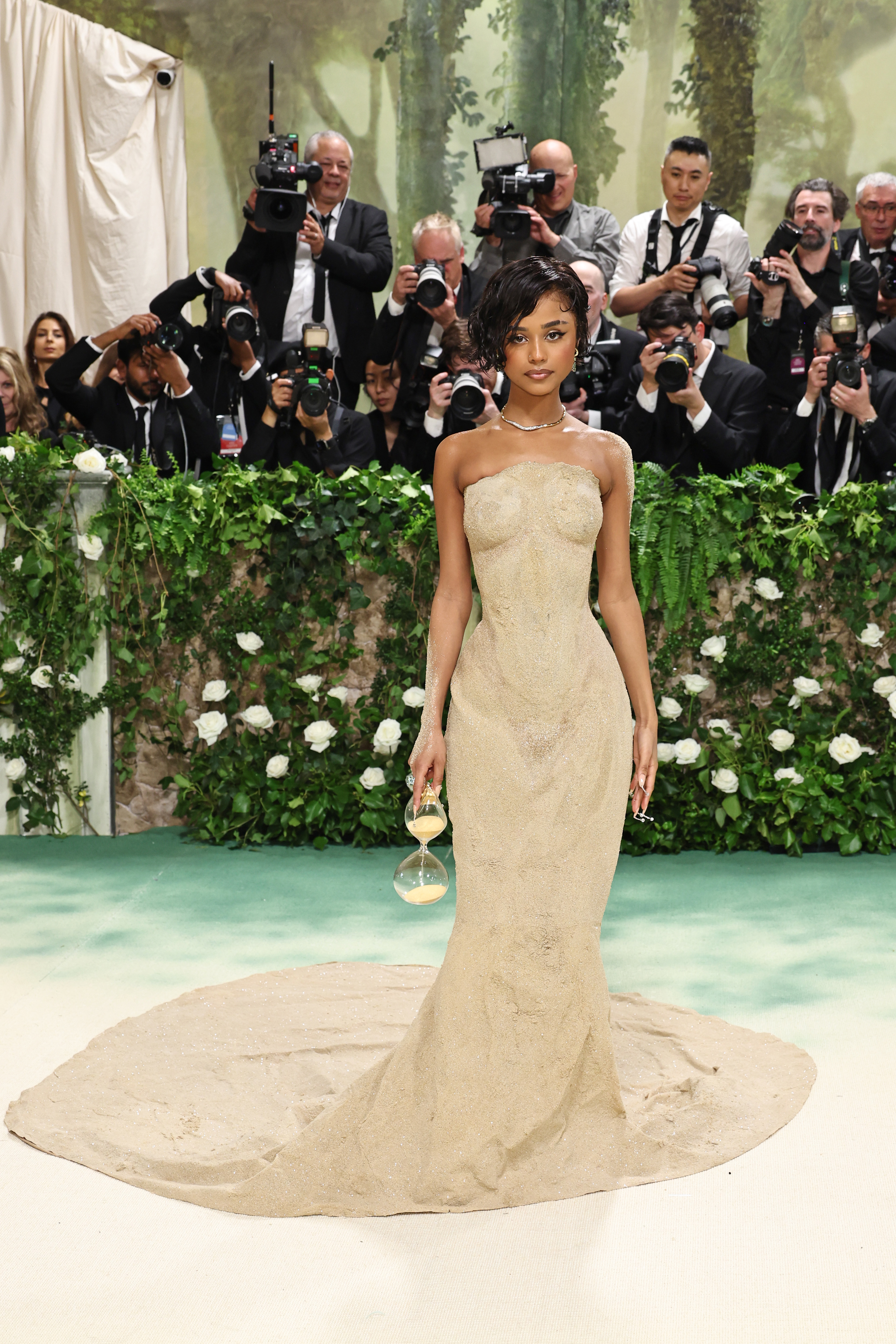
Cara Delevigne, FKA Twigs, and Ed Sheeran in Stella McCartney
Stella McCartney, arguably one of fashion’s most renowned climate activists, dressed Cara Delevigne, FKA Twigs, and Ed Sheeran—who made his Met Gala debut—in lab-grown diamonds made in collaboration with Vrai.

Zendaya in archive John Galliano for Christian Dior
Zendaya wore an archival design from John Galliano’s Christian Dior Spring/Summer 1999 collection with a headpiece by Stephen Jones for Maison Margiela, which incorporated flora and fauna.

Zendaya in archive John Galliano for Givenchy
The Challengers’ actresses’ second look of the night was another archival design - a Givenchy gown designed by John Galliano in 1996 with a vintage Philip Treacy headpiece from the show.

Jennifer Lopez in custom Schiaparelli
Co-chair Jennifer Lopez wore a custom Schiaparelli haute couture gown that reportedly took 800 hours to craft and was designed to evoke the butterfly, which Creative Director Daniel Roseberry said symbolised metamorphosis; “Something that was asleep that wakes up beautiful, powerful, and new.
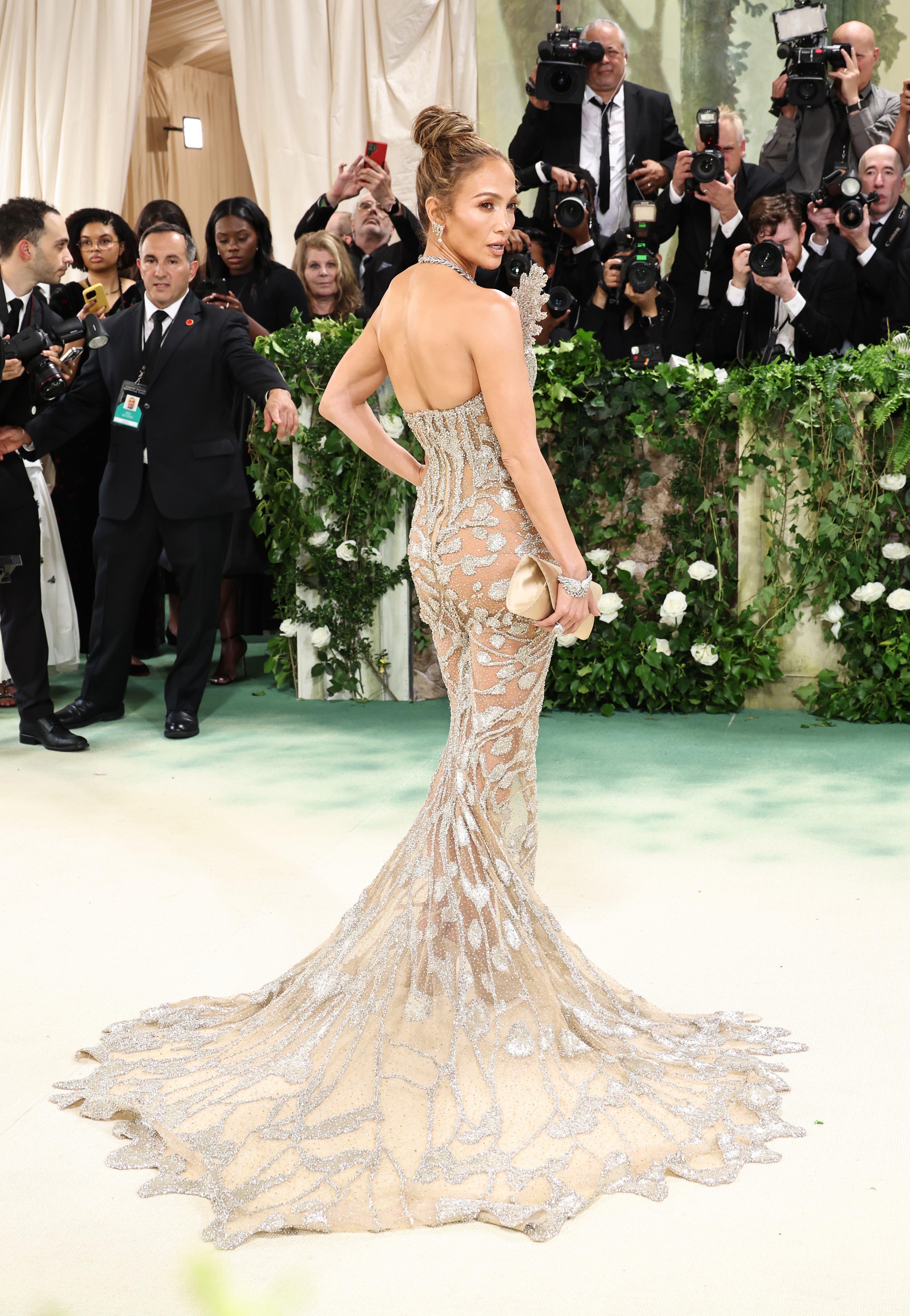
Amanda Seyfried in repurposed Prada
Amanda Seyfried’s Prada gown was made from fabric that had been repurposed from Miuccia Prada’s 2009 spring collection.

Janelle Monáe in Vera Wang
Janelle Monáe's Vera Wang gown was made from recycled bottle tops
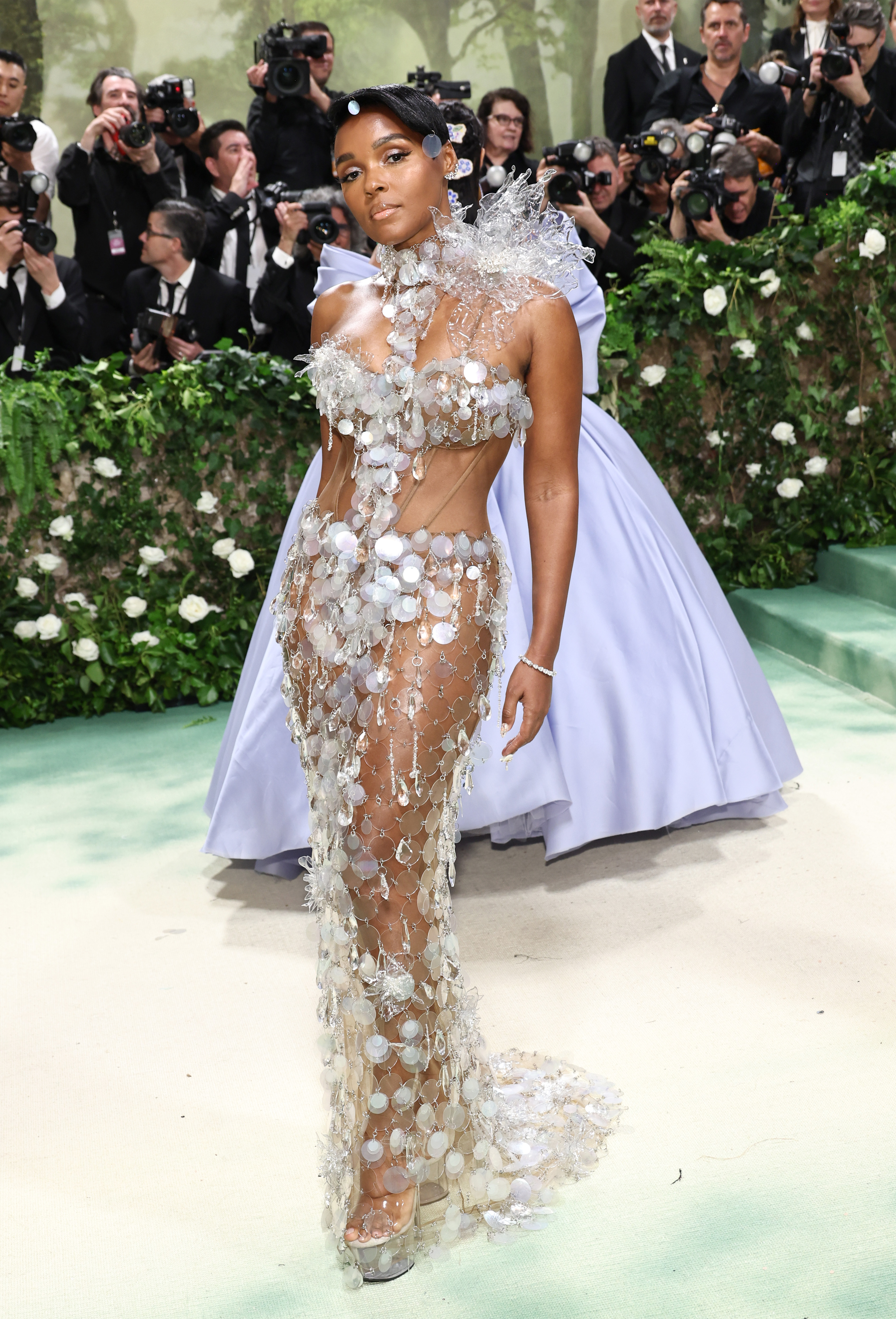
Kendall Jenner in archive Alexander McQueen
Kendall Jenner also opted for an archival design; a 1999 Alexander McQueen for Givenchy haute couture gown.
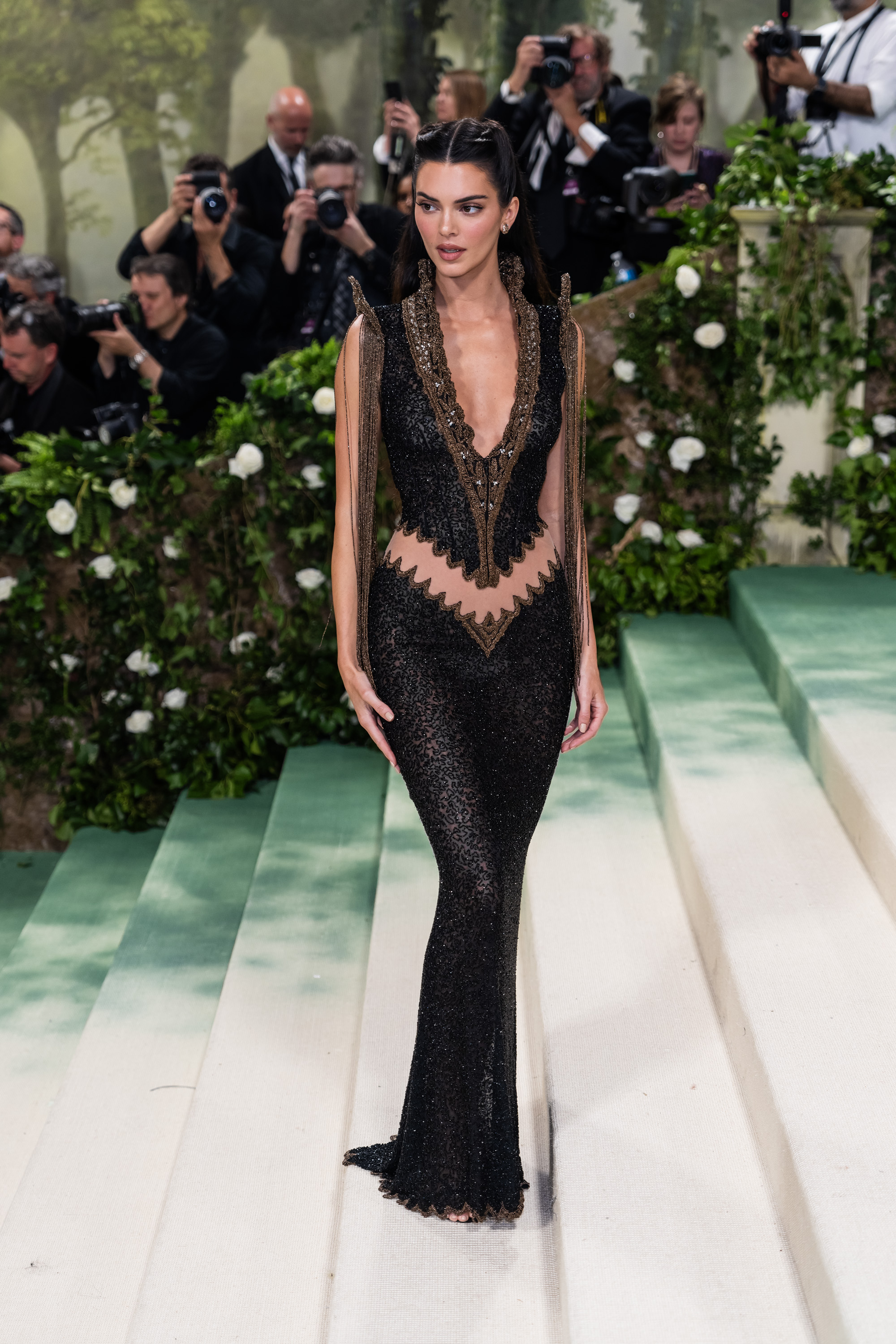
Penélope Cruz in Chanel
Penélope Cruz’s gown was crafted from three different Chanel couture dresses from the 1940s, 1950s and 2020.

Charli XCX in Marni
Charli XCX’s Marni dress was made from 50 upcycled T-shirts
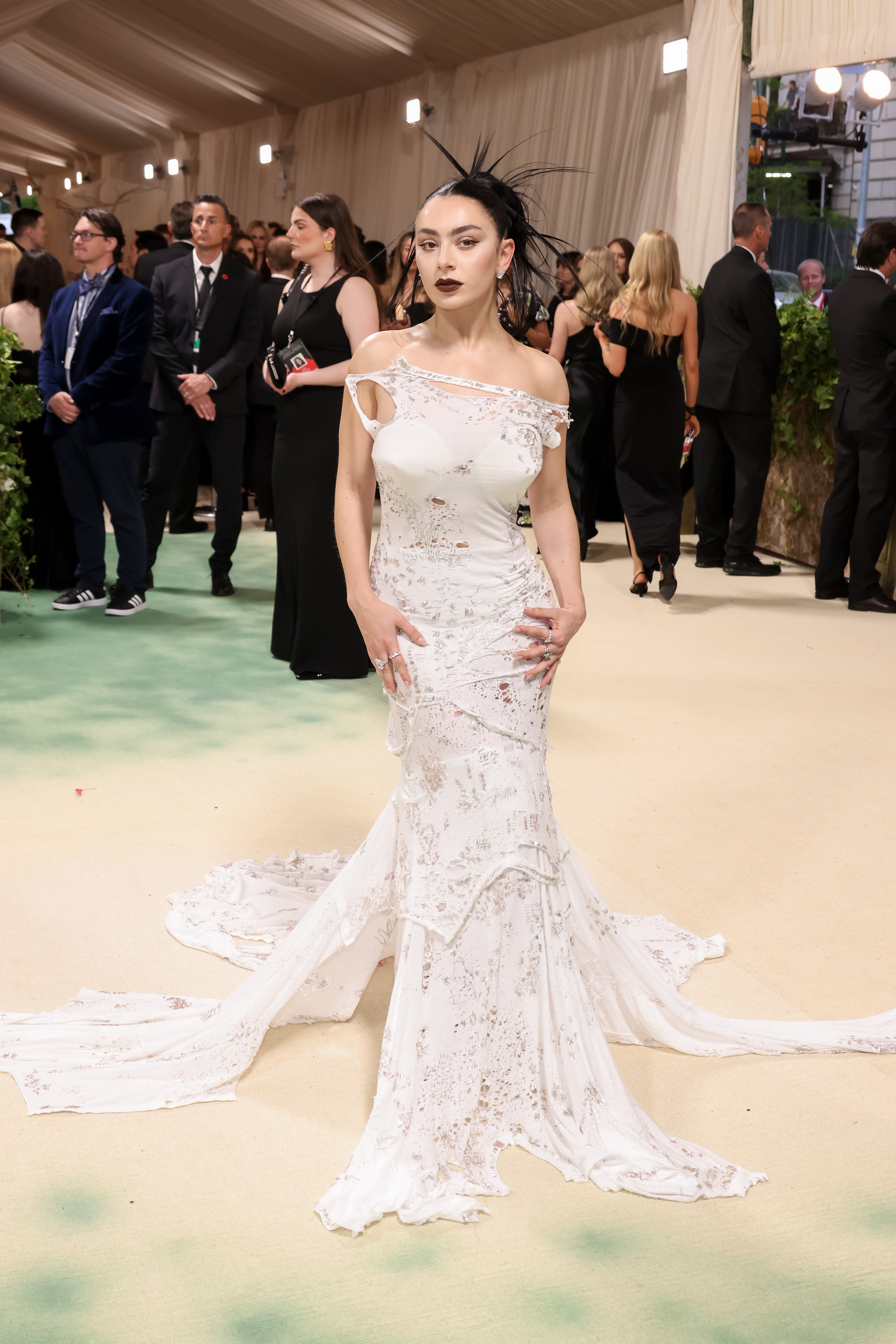
Nicki Minaj in Marni
Nicki Minaj’s Marni dress was made using aluminium cans
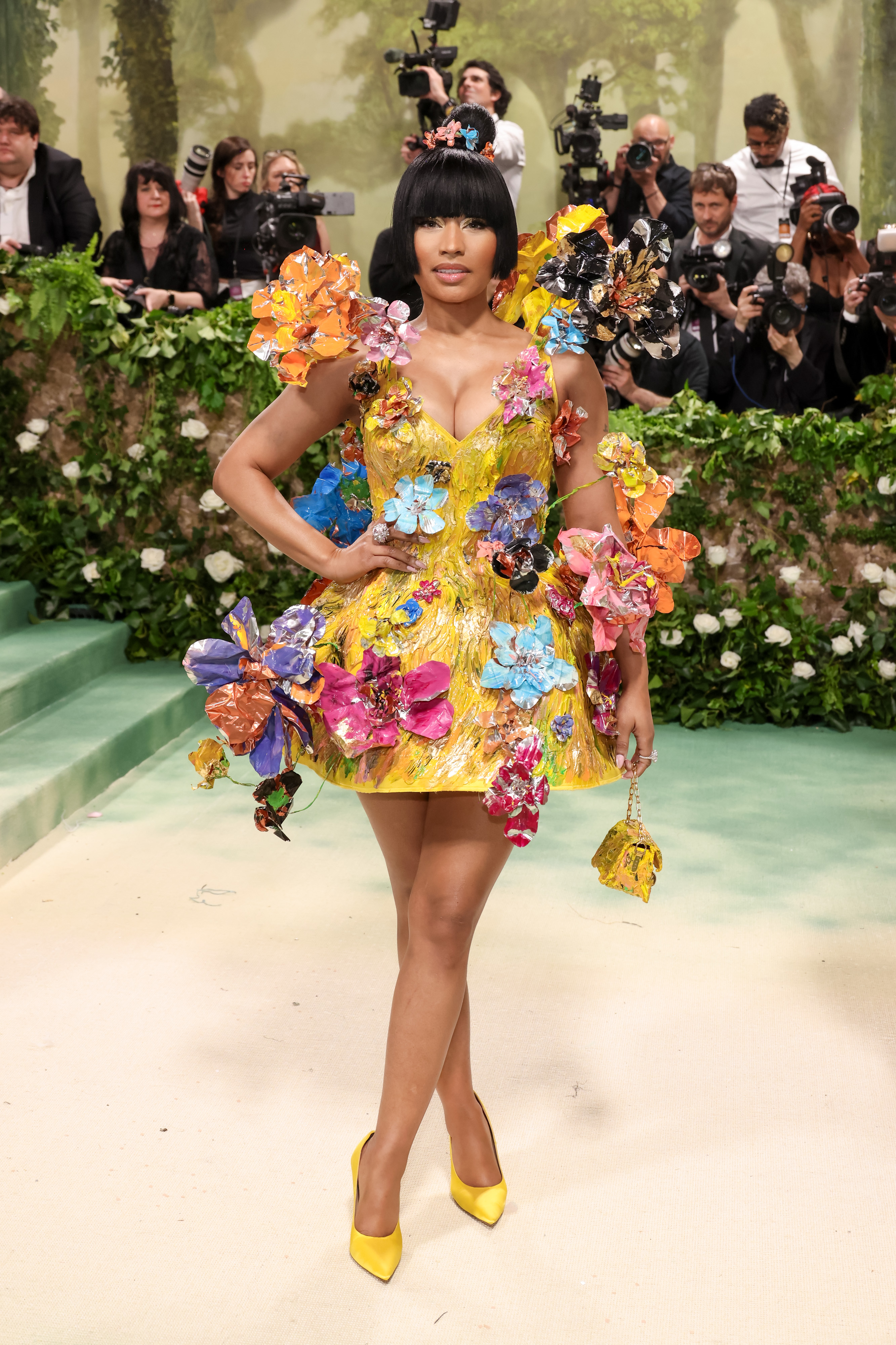
Demi Moore in Harris Reed
Demi Moore’s Harris Reed gown was made from upcycled wallpaper

Maria Sharapova in Prabal Gurung
Maria Sharapova’s Prabal Gurung gown was made from fine organic cotton that had been ethically sourced from family-owned farms in India.
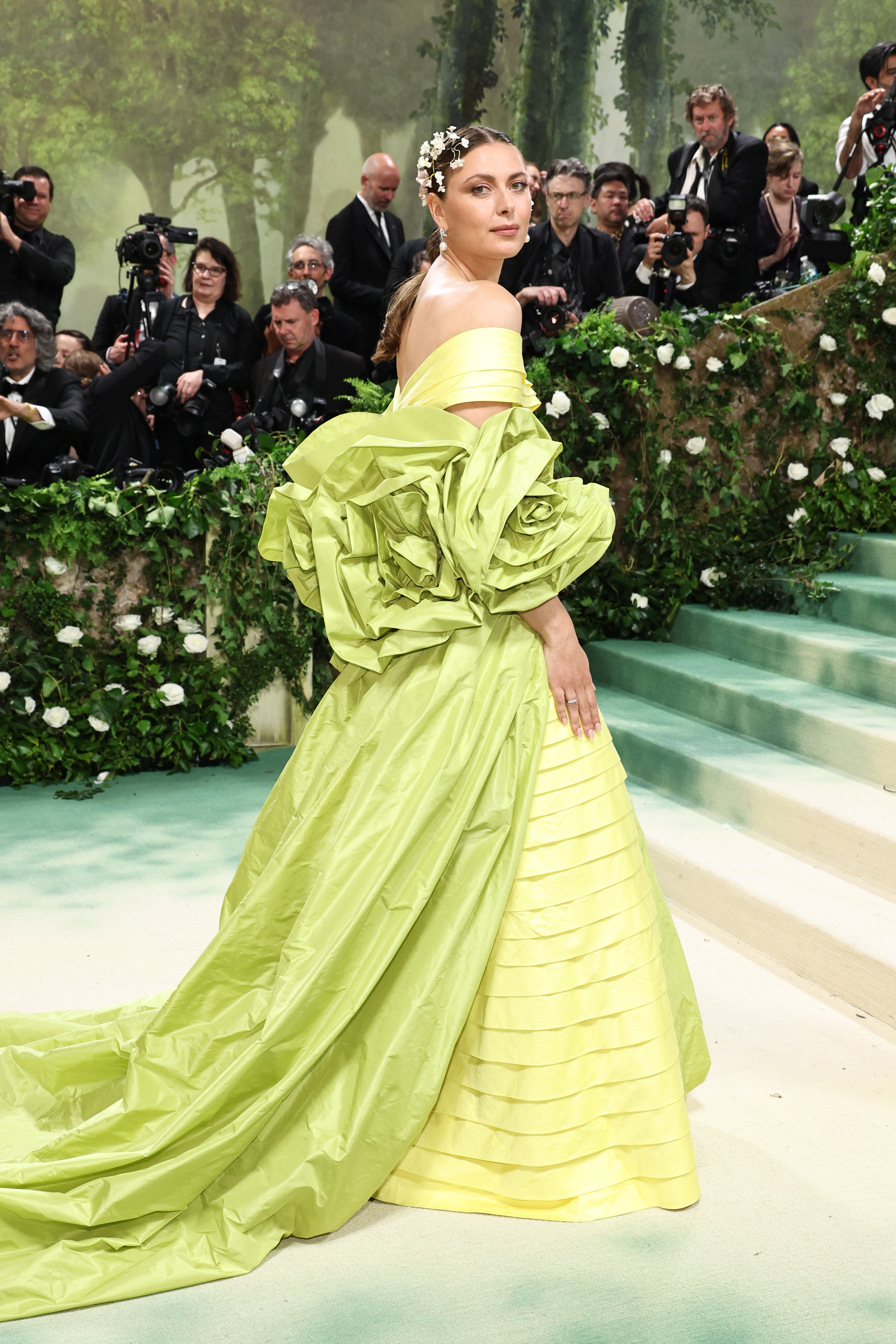
Naomi Watts in Balenciaga
Naomi Watts’ Balenciaga dress was spun from a vintage tablecloth
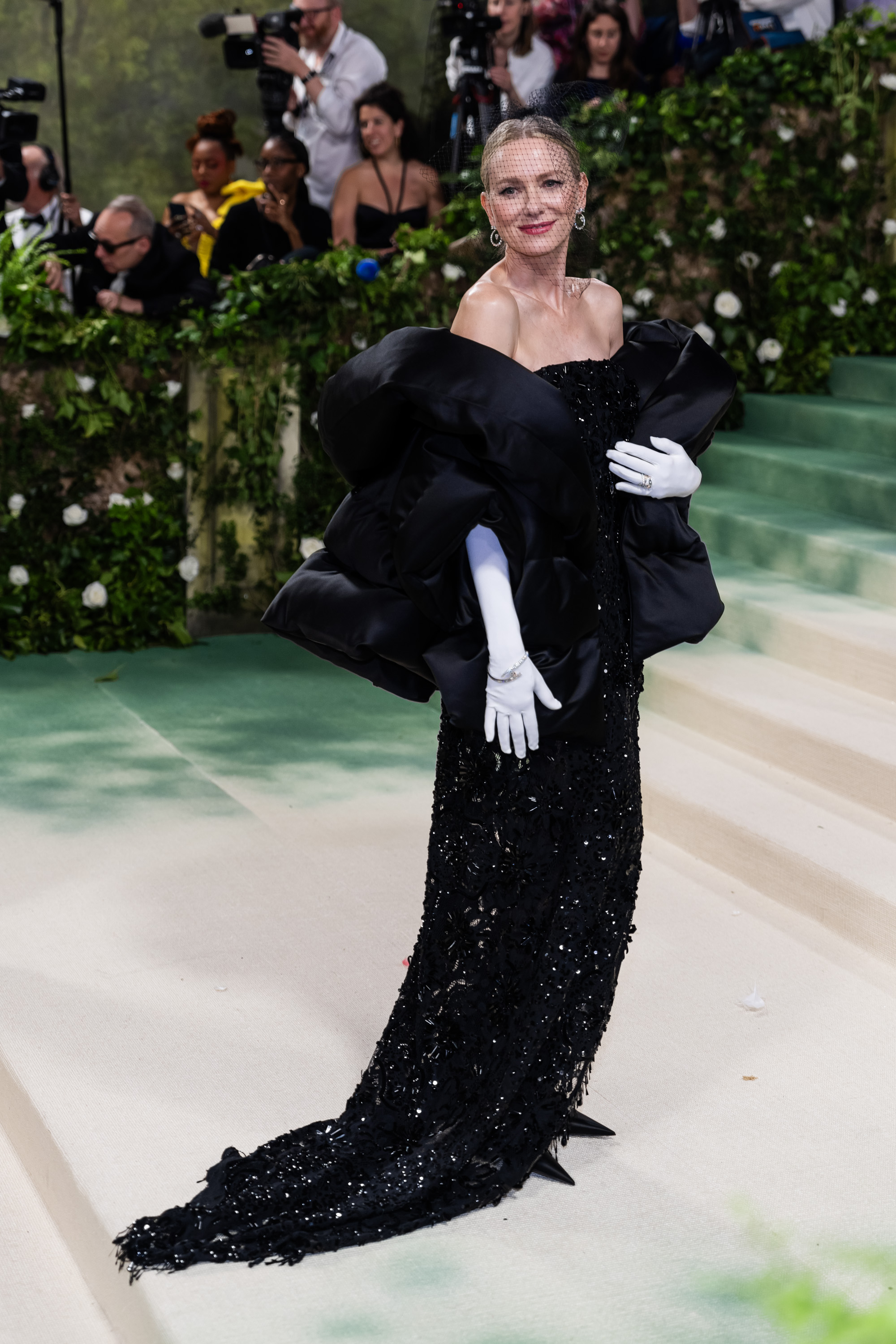

Mischa Anouk Smith is the News and Features Editor of Marie Claire UK.
From personal essays to purpose-driven stories, reported studies, and interviews with celebrities like Rosie Huntington-Whiteley and designers including Dries Van Noten, Mischa has been featured in publications such as Refinery29, Stylist and Dazed. Her work explores what it means to be a woman today and sits at the intersection of culture and style. In the spirit of eclecticism, she has also written about NFTs, mental health and the rise of AI bands.